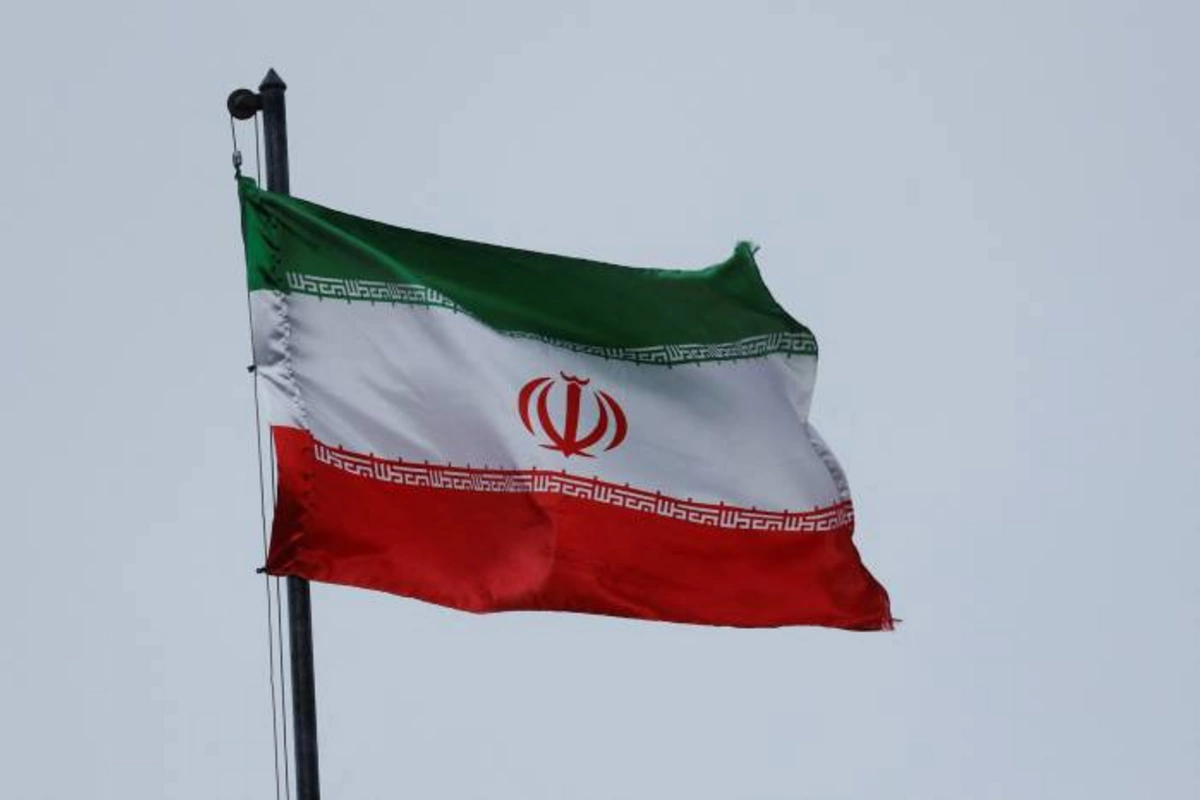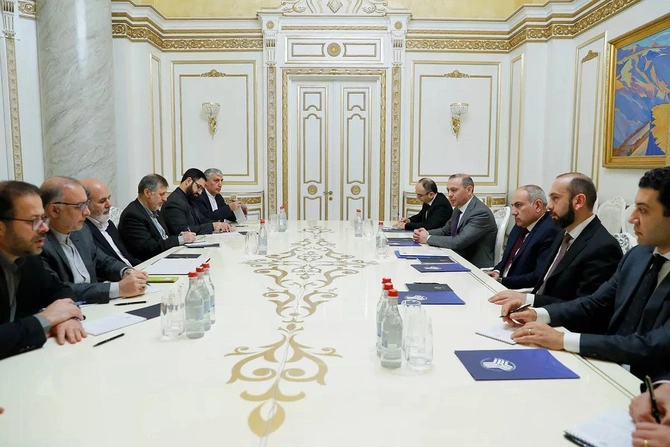
Photo: Reuters
During a recent trip to Yerevan, Ali Akbar Ahmadian, Secretary of Iran’s Supreme National Security Council, is said to have laid out a clear set of demands to Armenian authorities, cautioning that failure to fulfill these requirements could lead to serious repercussions. His visit underscores Iran’s deepening concerns over Armenia’s pivot toward Western security structures and the broader reshaping of power dynamics in the South Caucasus.
Ahmadian’s diplomatic mission came on the heels of a major conflict that broke out in the Middle East on October 7, 2023, a conflict that dealt significant blows to the Islamic Republic of Iran. For decades, Tehran had invested considerable resources into developing what it calls the “Axis of Resistance,” comprising various regional allies and proxies. However, a series of setbacks has challenged Iranian ambitions. Most notably, Israel’s heavy strikes against Hamas in Gaza severely weakened the group, and further blows against Hezbollah leadership, coupled with attacks on Iranian air-defense systems, underscored Tehran’s vulnerability. At the same time, joint operations carried out by the United States and Israel targeted Houthi positions in Yemen, eroding another key component of Iran’s network of allies. The culmination of these events was the collapse of Bashar al-Assad’s regime in Syria by late 2024, stripping Iran of one of its principal pillars in the region.
These developments have underscored the fragility of Tehran’s strategic position, prompting a renewed focus on safeguarding its northern flank. In this context, Armenia’s deepening collaboration with Western forces has become a pressing concern for Iran.

Photo: AZERTAC
On January 8, Iranian Secretary Ali Akbar Ahmadian made a notable stop in Baku, where he was received by Azerbaijani President Ilham Aliyev. During their meeting, President Aliyev reiterated Azerbaijan’s stance that regional issues must be addressed by regional powers themselves, highlighting the “3+3” initiative as a platform for multilateral cooperation. This framework, in Aliyev’s view, offers an avenue for local states to manage their affairs without inviting external military interventions.
For Tehran, Azerbaijan’s position appears relatively predictable and even reassuring. Baku has consistently pursued an independent foreign policy and has avoided housing foreign military bases on its territory-moves that could potentially be construed by Iran as hostile. Azerbaijan’s declared policy that all disputes in the South Caucasus should be resolved through homegrown mechanisms has helped maintain at least a measure of stability in bilateral ties. By contrast, Armenia’s closer alignment with the West raises alarm bells in Tehran, which sees in it the seeds of a possible Western “containment” strategy along Iran’s borders.
Among the most prominent issues is the ongoing presence of an EU monitoring mission in Armenia, a deployment that has, in Tehran’s estimation, effectively turned into a NATO-led operation tasked with gathering intelligence on Azerbaijan, Iran, and Russian forces stationed on Armenian territory. Meanwhile, regular joint military exercises between Armenian and American troops have further heightened Iran’s suspicions regarding Western influence next door. Of particular concern, according to reporting by Caliber.Az, is the presence of a small contingent of the U.S. Army in Zangezur, near the Iranian border. This unit is said to possess advanced technology designed to track missile launches and other aerial trajectories originating from Iranian soil. Such activities undoubtedly compound Tehran’s sense of vulnerability, particularly at a time when it is already confronting significant security challenges on multiple fronts.
Prime Minister Nikol Pashinyan’s government has been steering Armenia into deeper political and military cooperation with both the European Union and NATO.

Photo: Tehran Times
According to diplomatic sources cited by Caliber.Az, Ahmadian’s discussions in Yerevan revolved around a direct request to Armenia’s leadership: step away from efforts to join or deepen ties with these Western alliances and dismantle the existing EU monitoring mission. In return, Ahmadian proposed concluding a defense pact with Iran that could include the deployment of Iranian forces on Armenian territory, thereby giving Tehran a more tangible foothold in the South Caucasus.
These maneuverings have placed Armenia in an exceptionally delicate position. Having invested politically and strategically in Western partnerships, Yerevan now risks alienating Iran-a major neighbor and one of the region’s influential actors-if it continues on its current path. Observers note that Armenia’s leadership had numerous earlier opportunities to secure peace agreements with Azerbaijan and to normalize relations with Türkiye. Such moves might have shielded the country from becoming the focus of this escalating geopolitical rivalry. Now, each decision Yerevan makes could carry increasingly severe consequences, not only for its relationship with Tehran but also for its ties to Western partners.
At the same time, Iran finds itself grappling with a perilous geopolitical reality. Fearing a potential military strike by the United States and its allies-particularly Israel-Tehran is anxious to minimize any threats emanating from Armenian territory. Reports indicate that American specialists operating on Armenian soil are employing sophisticated devices to monitor Iranian military and missile activity. In Iran’s view, any Western-aligned presence near its border amplifies the risk of covert surveillance or, worse yet, the staging of potential attacks.
Compounding Iran’s sense of encirclement is its diminishing influence in Syria and the weakening of its proxy forces in other theaters, along with Russia’s preoccupation with the ongoing conflict in Ukraine. These circumstances have left Iran more isolated than at any time in recent memory, significantly constraining Tehran’s ability to project power in the region. Feeling cornered by what it perceives as a tightening ring of U.S. and allied forces, Iran appears determined to act quickly to neutralize emerging threats.
Under these conditions, Armenia has become an increasingly important strategic piece on the regional chessboard. Given its proximity to Iranian borders and burgeoning ties to Western military actors, Armenia could serve-intentionally or otherwise-as a base for exerting pressure on Tehran. From Iran’s perspective, managing this challenge is not merely a matter of sustaining its regional influence; it is a question of fundamental national security. In the face of mounting external pressures, Iran is signaling its willingness to take bolder measures, from defense pacts that station its troops abroad to intensified diplomatic outreach aimed at undermining Western footholds near its borders.
How Yerevan will respond to Tehran’s demands-and how this will reshape the security landscape of the South Caucasus-remains unclear. What is certain is that the stakes are high for all involved. Armenia risks further entanglement in a power struggle that could escalate beyond its control, while Iran is under increasing strain to safeguard its strategic interests. As the region faces a critical junction, the choices made in the coming weeks and months could redefine alliances and set new lines of confrontation, impacting not only the South Caucasus but the broader geopolitical balance across the Middle East and beyond.
Share on social media